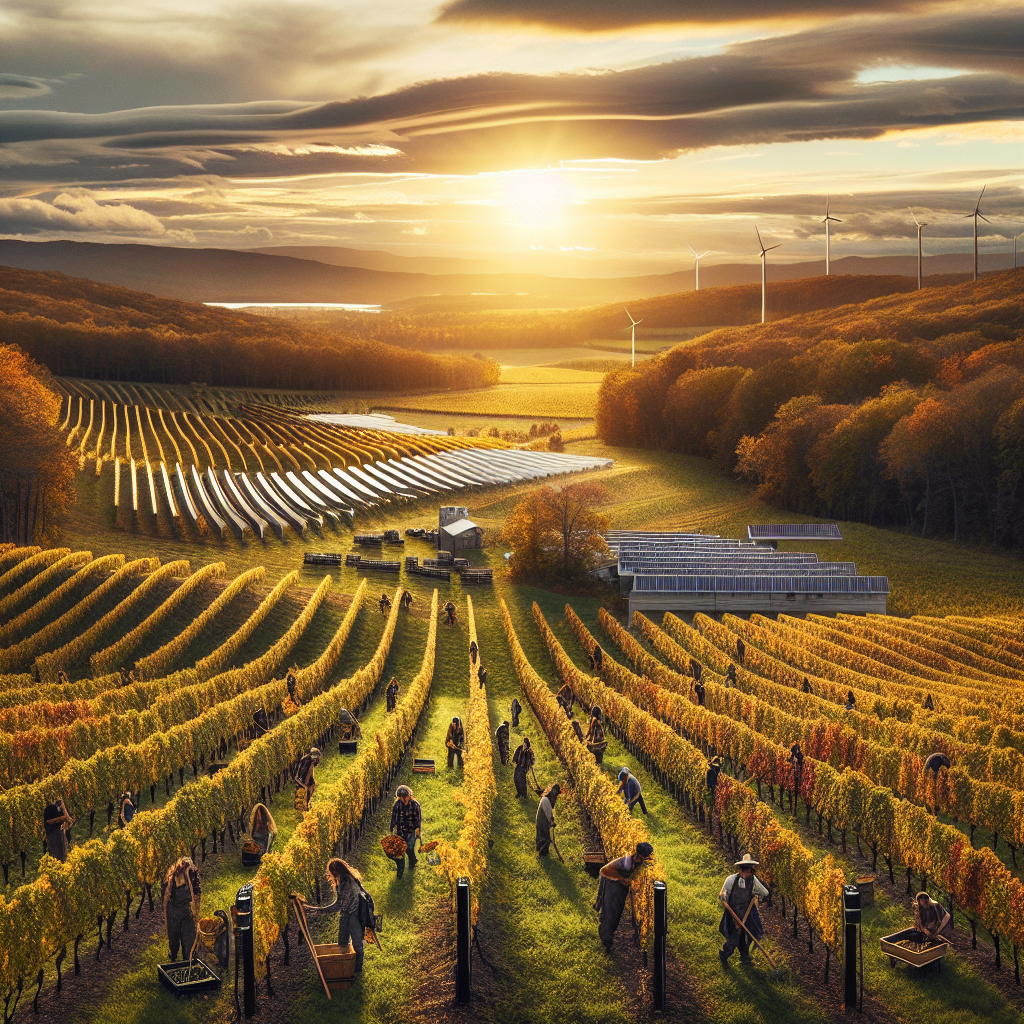New York Vineyards Embrace Sustainability to Tackle Climate Change
New York Vineyards Embrace Sustainability to Tackle Climate Change
Introduction
New York vineyards are taking proactive steps to address the challenges posed by climate change. By adopting sustainable practices, these vineyards aim to preserve their industry and contribute positively to the environment.
Key Sustainable Practices
Vineyards across New York are implementing a variety of sustainable practices to mitigate the effects of climate change:
- Organic Farming: Many vineyards are transitioning to organic farming methods, reducing the use of synthetic pesticides and fertilizers.
- Water Conservation: Innovative irrigation techniques are being employed to minimize water usage and preserve this vital resource.
- Renewable Energy: Solar panels and wind turbines are being installed to power vineyard operations, reducing reliance on fossil fuels.
- Soil Health Management: Practices such as cover cropping and composting are enhancing soil health and increasing carbon sequestration.
Challenges and Opportunities
While the shift towards sustainability presents challenges, such as initial costs and the need for education, it also offers significant opportunities:
- Market Demand: There is a growing consumer demand for sustainably produced wines, providing a competitive edge.
- Long-term Viability: Sustainable practices ensure the long-term health and productivity of vineyards.
- Community Engagement: These efforts foster stronger community ties and promote environmental stewardship.
Conclusion
New York vineyards are leading the way in sustainable agriculture, setting an example for the wine industry worldwide. By embracing innovative practices, they are not only combating climate change but also securing a prosperous future for their businesses and communities.






































